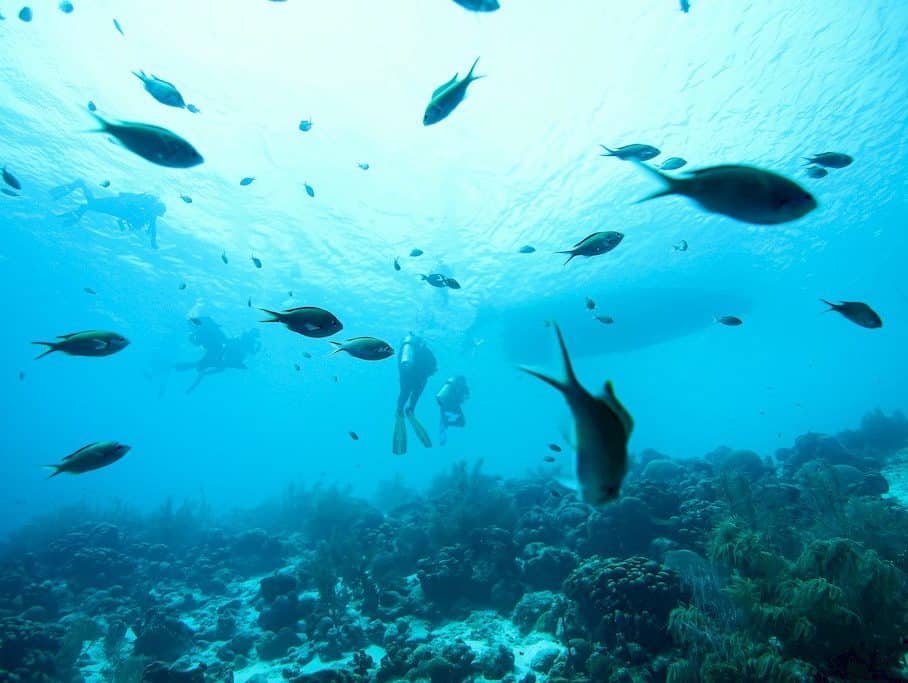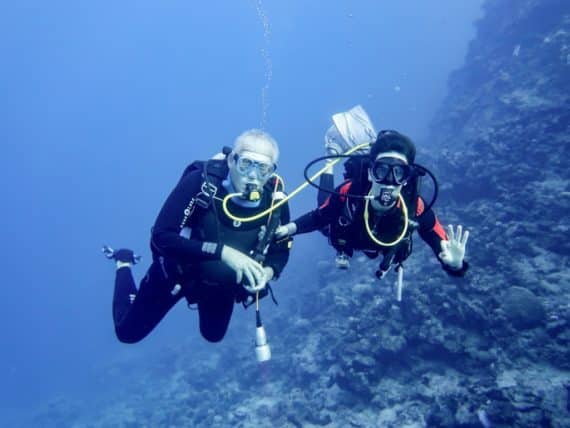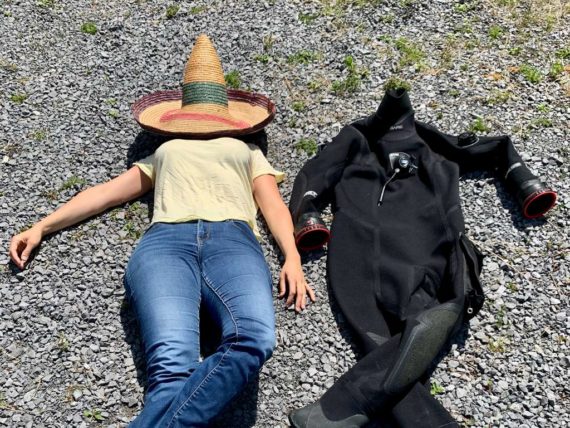Diving risks, what risks?
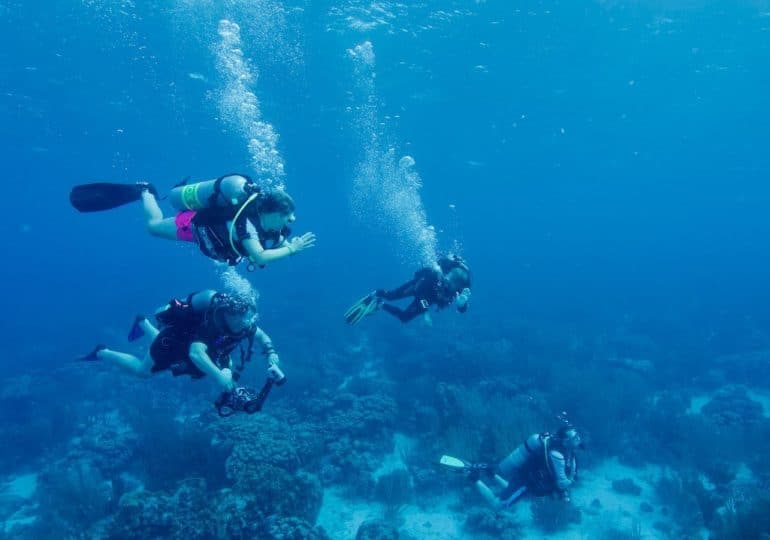
Diving risks, what risks?
The question was in my mind. I had discussed this topic many times with divers or people who were simply interested in the activity without being able to give a clear answer. Most recently, during a chat on diving with “yoyo” profiles, it reactivate this desire to understand more clearly diving risks.
Of course, we know that this activity includes certain risks such as getting a sore ear, having a DCS, pulmonary overpressure or drowning. It’s therefore necessary to learn how to avoid them, minimize the risks, as explained in this section of the blog. However, I must admit that sometimes I answered the question of the dangerousness of diving telling that by respecting the basic rules of safety, it was surely no more dangerous than many other sports or daily activities.
And then I discovered Clemens’ study on diving risks
Looking for a little bit, I came across the reasoned comparison of Clemens S. Ceipek, a blogger with a passion for gliding.
Gliding? Nothing to do with scuba diving, you’ll tell me. However…
Clemens has recently made a great work of comparison of the risks taken by practitioners of different sports, including scuba diving.
The results of his research, published in October 2019 under the title “The risk of dying by doing what we love” are challenging. The full article of Clemens in English here.
A methodological choice
To begin with, Clemens points to the cognitive dissonance that results from consciously carrying out an activity that puts us in danger simply by engaging in this activity. This is the case with diving, which is practiced in an environment that is not ours. Here we go.
This is perhaps the reason why this Austrian blogger illustrated the beginning of his research by the practice of this specific activity.
Immediately he breaks the myth that driving would be more dangerous than diving. For this, he makes a quick calculation:
1 person out of 5555 drivers killed on the road in 2008 against only one in 212,000 dives. It is easy to understand that we cannot compare drivers with dives since the dive is unique, but the driver can make many trips in one year. By estimating that each driver makes 2 trips a day, Clemens is showing a report telling that diving is 19 times more dangerous than driving a car.
Based on this observation, the blogger decides to conduct his own research by using as a basis of comparison the risk of dying (and the risk of injury) per hour of activity.
On one hand to enlighten the choice to use his free time. On the other hand to estimate the level of severity of the risk and therefore take more or less time for the preparation/planning of the activity.
Clemens chose to calibrate activities against air travel on a commercial line with a mortality risk of 0.01%
The results are quite interesting and do not let us hide behind false beliefs that there are no real dangers in diving.
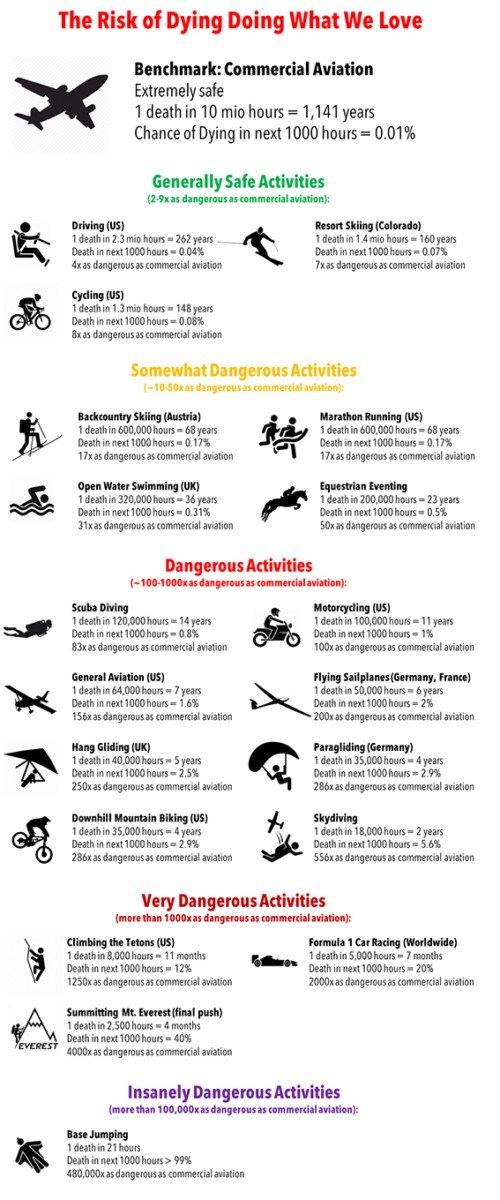
Diving risks: a comparison based on age
Even more surprising is the parallel that Clemens makes in relation to age based on social security figures in the United States.
One notices, for example, that the probability of dying while diving is equal to the probability of dying at age 80, thus relatively high. Of course, it is still much less than the practice of skydiving which equates to the risk of death of a 107-year-old man!

But why are we taking these risks?
Clemens’ study does not answer this question. Perhaps it’s for the feeling that diving gives us? Or adrenaline?
It’s hard to answer even if we try to clarify it by analyzing Why do We Dive ?.
Dangers of diving: should we stop?
Of course, through this study, Clemens does not seek to deter people from doing their favorite activity. On the other hand, his objective is clearly to encourage to be more aware of the risks taken when we engage in our leisure activity. But also to encourage us to take steps to reduce these risks. I must recognize that this is an approach that I like very much.
Indeed, when we read the unfortunate accounts of diving accidents, we quickly realize that they are in most cases the result of human error. And that these mistakes could often have been avoided.
How can we reduce diving risks ?
There are many ways to reduce the risk of scuba diving:
- Train… remaining open to what is being done in other scuba diving agencies.
- Dive according to “who you are” by also taking into account your weaknesses (allergy, patent foramen ovale…)
- Maintain your equipment ➡️ 10 things to do to maintain my scuba gear
- Plan your dive and dive your plan. We can’t say it enough: plan your dive and dive what you’ve planned. It’s simple and effective and it will save you a lot of trouble. This is very important because you dive in an unusual environment for you. But also after a long time without diving. Or when you get older: your body is not the same at 60 as at 20 even if you would like to persuade yourself.
- Get into the habit of doing a clear and accurate briefing. Check here if you don’t know how to make a good briefing.
- Dive with your brain. Don’t believe everything you’re told. Think, take a critical step back and… Ask all the questions that cross your mind even if you are afraid to look stupid. Believe me, you won’t be. On the other hand, the one who stays with his misunderstandings …
- Apply simple safety rules. Avoid challenges. Do your check-dive with joy, hydrate yourself, take into account your age and/or your physical fitness… ➡️ My 5 tips to prevent diving accidents
Conclusion
If the research conducted by Clemens S. Ceipek can and will probably be criticized on one point or another (one can always criticize), it is nonetheless interesting.
First of all, because it reminds us that we, as fans of so-called “extreme” sports, evolve in an environment that is not our own.
Then because it allows us to make a conscious choice.
Finally, because he proposes to adopt a more responsible and thoughtful attitude towards our diving practice.
In short, no more denial: now you know you are doing something that is risky. But you also know that you can take action to reduce these risks.
Do you beleive in risks when scuba diving? Is that scary? You don’t care ?
Tell me your experiences.
And above all… don’t forget to be happy 🤗
Hélène
Did you like this article? Share it on your favourite bands to get the most people out of it



